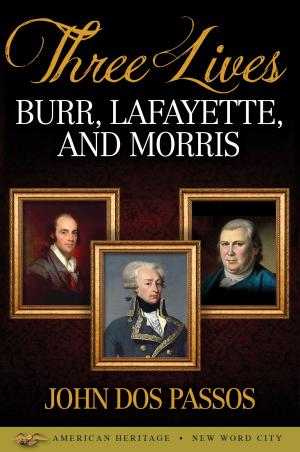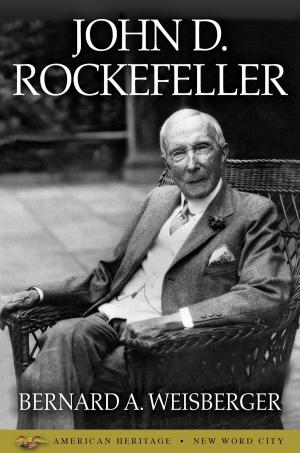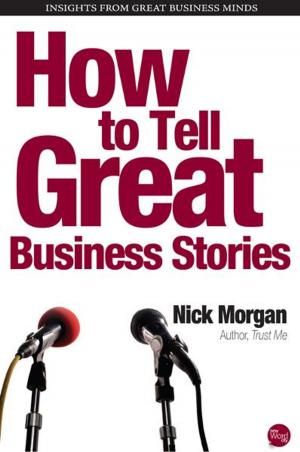Franklin
Nonfiction, History, Americas, United States, Colonial Period (1600-1775), Biography & Memoir, Political, Historical| Author: | Thomas Fleming | ISBN: | 9781612307046 |
| Publisher: | New Word City, Inc. | Publication: | November 6, 2018 |
| Imprint: | Language: | English |
| Author: | Thomas Fleming |
| ISBN: | 9781612307046 |
| Publisher: | New Word City, Inc. |
| Publication: | November 6, 2018 |
| Imprint: | |
| Language: | English |
New York Times bestselling historian Thomas Fleming brings his extraordinary biographical talents to bear upon Benjamin Franklin, perhaps the least understood of America's revolutionary giants. For this reappraisal, Fleming concentrates on the mature Franklin, the man who lived nearly thirty years beyond the point where he ended his famous Autobiography. The poor boy, the miserly young printer, has become a decidedly more complex and cultured man. In scene after vivid scene, Fleming shows us how Franklin's unique blend of faith and courage, humor and wisdom presided over the birth of the American nation. Interwoven in this political history is a moving, almost forgotten personal drama - the conflict between Franklin and his son William, the royal governor of New Jersey, the "thorough courtier," as Franklin called him. Year by year, we watch the two men drift apart as the quarrel between America and England deepens - yet always reaching across the gulf with words of personal affection. Finally comes the climactic confrontation, when a fully disillusioned Franklin returns from eleven years in England to confront the son for whom independence is a hated word. With him, Franklin brings William's son Temple, educated in England. The bitter political quarrel soon forces father and grandfather to fight for the boy's loyalty. This personalization of history is Thomas Fleming's hallmark. Almost as revealing as the dramatization of Franklin's battle with his son is the chronicle of Franklin's years in England before the Revolution. We see the network of friendships he created, the deep feeling with which he and William visited the ancestral village of Ecton, the fascinating blend of emotion and reason in his crucial testimony before Parliament at the height of the Stamp Act furor in 1766. Then we see this innate passion for England slowly fade during the next eight years as Franklin struggles to defend America from Parliament's greedy prejudice and - another forgotten story - simultaneously to establish a fourteenth colony on the Ohio. As always, Fleming combines colorful anecdote and shrewd analysis of men and motives. And Franklin being Franklin, there is also the constant spice of humor. We see him stopping at a country inn and emptying the chairs by the fire by booming: "Boy, get my horse a quart of oysters." Solemnly, he informs historian Edward Gibbon that he would provide him with "ample materials" on the decline and fall of the British Empire. The war won, he cheerfully assures English friends that their only hope now was to dissolve Parliament for good and "send delegates to Congress." We see him using humor to cope with the egotism and paranoia of other Americans in Paris. Finally, we witness him as mon cher papa, the friend and aspiring lover of two beautiful French women, wooing them with the wittiest essays ever written by a seventy-six-year-old suitor. But in all the byplay, personal and political, one theme dominates: Franklin's dedication to America - a commitment that transcended all others in his life and inspired him to dare the political lightning. It is what makes this book important reading now and in the future.
New York Times bestselling historian Thomas Fleming brings his extraordinary biographical talents to bear upon Benjamin Franklin, perhaps the least understood of America's revolutionary giants. For this reappraisal, Fleming concentrates on the mature Franklin, the man who lived nearly thirty years beyond the point where he ended his famous Autobiography. The poor boy, the miserly young printer, has become a decidedly more complex and cultured man. In scene after vivid scene, Fleming shows us how Franklin's unique blend of faith and courage, humor and wisdom presided over the birth of the American nation. Interwoven in this political history is a moving, almost forgotten personal drama - the conflict between Franklin and his son William, the royal governor of New Jersey, the "thorough courtier," as Franklin called him. Year by year, we watch the two men drift apart as the quarrel between America and England deepens - yet always reaching across the gulf with words of personal affection. Finally comes the climactic confrontation, when a fully disillusioned Franklin returns from eleven years in England to confront the son for whom independence is a hated word. With him, Franklin brings William's son Temple, educated in England. The bitter political quarrel soon forces father and grandfather to fight for the boy's loyalty. This personalization of history is Thomas Fleming's hallmark. Almost as revealing as the dramatization of Franklin's battle with his son is the chronicle of Franklin's years in England before the Revolution. We see the network of friendships he created, the deep feeling with which he and William visited the ancestral village of Ecton, the fascinating blend of emotion and reason in his crucial testimony before Parliament at the height of the Stamp Act furor in 1766. Then we see this innate passion for England slowly fade during the next eight years as Franklin struggles to defend America from Parliament's greedy prejudice and - another forgotten story - simultaneously to establish a fourteenth colony on the Ohio. As always, Fleming combines colorful anecdote and shrewd analysis of men and motives. And Franklin being Franklin, there is also the constant spice of humor. We see him stopping at a country inn and emptying the chairs by the fire by booming: "Boy, get my horse a quart of oysters." Solemnly, he informs historian Edward Gibbon that he would provide him with "ample materials" on the decline and fall of the British Empire. The war won, he cheerfully assures English friends that their only hope now was to dissolve Parliament for good and "send delegates to Congress." We see him using humor to cope with the egotism and paranoia of other Americans in Paris. Finally, we witness him as mon cher papa, the friend and aspiring lover of two beautiful French women, wooing them with the wittiest essays ever written by a seventy-six-year-old suitor. But in all the byplay, personal and political, one theme dominates: Franklin's dedication to America - a commitment that transcended all others in his life and inspired him to dare the political lightning. It is what makes this book important reading now and in the future.















